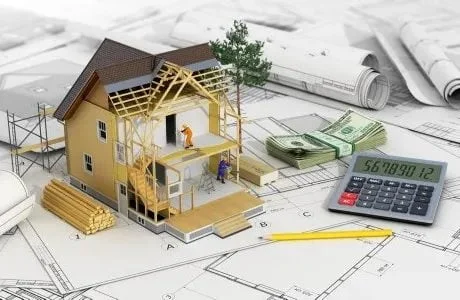A general contractor plays a vital role in construction projects, managing everything from planning to completion. To succeed, a contractor must have a mix of technical, managerial, and interpersonal skills.
Here’s a detailed guide to the essential skills every general contractor needs to excel.
1. Strong Leadership Abilities
Leadership is the backbone of a contractor’s role. Successful contractors guide their teams, set goals, and ensure smooth collaboration. Good leadership also involves problem-solving under pressure and keeping morale high during challenging times.
When managing projects like commercial construction estimation, a contractor must make quick decisions and delegate tasks effectively. Without strong leadership, even the best plans can fail.
2. Excellent Communication Skills
Clear communication ensures all team members understand their roles and responsibilities. Contractors must communicate effectively with clients, architects, subcontractors, and suppliers.
For example, explaining complex tasks like drywall estimating to clients or team members requires simplifying technical terms. Active listening and adaptability are also part of excellent communication.
3. In-Depth Construction Knowledge
Successful contractors need extensive knowledge of construction methods, materials, and regulations. This expertise allows them to identify potential challenges and find solutions quickly.
Understanding tasks like lumber estimating is critical. A contractor should know how to calculate material needs accurately to avoid delays and cost overruns.
4. Project Management Expertise
A general contractor must master project management to keep everything running on schedule. This involves planning timelines, allocating resources, and ensuring deadlines are met.
Tools like scheduling software can be invaluable for handling multiple tasks and tracking progress. Contractors who excel in project management gain trust from clients and team members.
5. Financial and Budgeting Skills
Managing construction cost estimating is a critical skill. Contractors need to create realistic budgets and monitor expenses to avoid overspending.
They must also understand how to balance costs with quality. A well-managed budget ensures the project stays profitable while meeting client expectations.
6. Problem-Solving Skills
Construction projects often face unexpected challenges, like weather delays or material shortages. A successful contractor remains calm and resourceful in these situations.
Problem-solving involves evaluating options, weighing risks, and implementing effective solutions. This skill helps contractors keep projects on track, even under difficult circumstances.
7. Attention to Detail
Small mistakes can lead to big problems in construction. Contractors must pay close attention to details, from reading blueprints to ensuring safety protocols are followed.
Tasks like residential construction estimating require precision. Miscalculations can result in project delays or financial losses. A detail-oriented contractor ensures everything is done correctly the first time.
8. Technical Skills and Tool Knowledge
Contractors need to stay updated on the latest tools, equipment, and technologies. Whether it’s understanding advanced machinery or using software for estimation, technical skills are a must.
For instance, knowing how to use drywall estimating software can save time and improve accuracy. This expertise also boosts a contractor’s credibility with clients and team members.
9. Understanding of Safety Standards
Safety is a top priority in construction. Contractors must know and enforce OSHA regulations and other safety guidelines.
Creating a safe work environment reduces accidents, increases productivity, and protects the contractor’s reputation. Regular safety training and inspections are essential parts of this responsibility.
10. Customer Service Skills
Happy clients are key to a contractor’s success. Contractors must understand their clients’ needs and work hard to exceed expectations.
Good customer service includes clear communication, timely updates, and delivering quality work. A satisfied client is more likely to provide referrals, boosting the contractor’s business.
11. Negotiation Skills
Negotiation is a daily part of a contractor’s job, whether it’s securing deals with suppliers or managing disputes.
Strong negotiation skills help contractors save money, resolve conflicts, and maintain good relationships. This is especially important in tasks like commercial construction estimation, where cost efficiency is critical.
12. Time Management Skills
Time is money in construction. Successful contractors know how to prioritize tasks, meet deadlines, and avoid delays.
Using tools like scheduling apps or construction management software can help optimize time management. Contractors who respect deadlines build trust with clients and team members.
13. Flexibility and Adaptability
No two construction projects are the same. Unexpected changes can occur, from design modifications to supply chain disruptions.
A successful contractor adapts quickly and adjusts plans without compromising quality. Flexibility ensures the project stays on track despite unforeseen challenges.
14. Legal and Regulatory Knowledge
Understanding construction laws and regulations is vital. Contractors must ensure permits, zoning laws, and building codes are followed.
Non-compliance can lead to penalties or project delays. A contractor with strong legal knowledge avoids these risks, protecting their reputation and the project’s success.
Conclusion
Being a successful general contractor requires more than just technical expertise. It’s a balance of leadership, communication, problem-solving, and adaptability. Mastering skills like construction cost estimating, residential construction estimating, and others ensures projects are completed efficiently and profitably.
